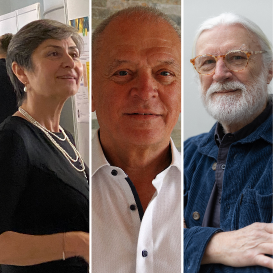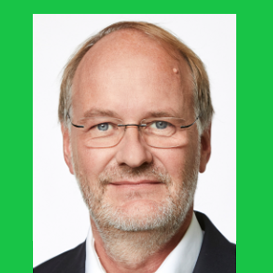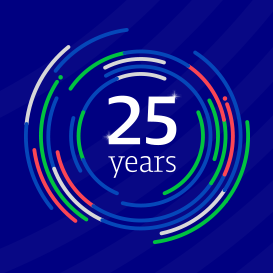PARFAIT
Connecting IoT with greater security

- Project
start
January 2018 - Project
end
December 2020 - Project
leader
Isil Ozkan
Turkcell Teknoloji, Türkiye - More
information
https://itea4.org/project/parfait.html
By 2020, Internet of Things (IoT) had transformed the internet into a global network connecting billions of communicating objects – 52% of which featured no security countermeasures. The threat of personal data misuse makes security the most significant barrier to the growth of IoT applications. Additionally, a lack of structures for interoperability increases the complexity of services and application development; complexity increases production and maintenance costs. These challenges must be met if IoT is to redefine human-computer interactions for the better.
To open the path to more securely connected ecosystems, the ITEA project PARFAIT, which successfully ran from the beginning of 2018 until the end of 2020 and gathered 11 partners from France, Romania and Türkiye, has developed a framework for personal data protection in IoT applications. This defines indistinct aspects of IoT, interoperability and privacy through the implementation of rules, guidelines and methodologies. The framework’s modules and guidance can be combined and utilised in the development of new solutions and have already been implemented in two use-cases: Smart Home and Smart Hotel, in which each partner had a strong contribution.
How can you benefit from the PARFAIT outcomes in your daily routines?
Let’s imagine that you are a business (wo)man and travel a lot. Your home is equipped with smart features, and you can communicate with it through text and voice messages. Once you arrive at your local airport, you can send a text message via Turkcell’s instant messaging service, BIP, to your home to say that you will be arriving soon. The equipment in your home uses its artificial intelligence, which is processed in the semantic layer of Turkgen. Thanks to the information that results from this process and your preferred settings that have previously been registered, a window can be opened to bring in fresh air, the air conditioning can be activated to cool down the temperature or the heating can be turned on to make it warm and cosy. This can all be achieved thanks to the connection to the IoT platform of Ericsson Türkiye for control of the sensors. Once arrived, you can send voice messages via Pertimm to have other settings adapted to your wishes.
At home, you see that another meeting is coming up in Paris and you book your preferred hotel using the smart hotel system supplied by Softeam. The hotel booking system uses a FIDO token supplied by Thales, which utilises the highest security standards. Hotel credentials are also automatically uploaded to your digital safe (PIMZ), implemented by Softeam. Secure gateways developed by SIS are available to easily link your environmental preferences from your Ericsson Türkiye account through the interface developed by BEIA.
When arriving at the hotel, you connect to the website with your phone in order to download the door credentials to your NFC mobile wallet developed by NXP. This wallet allows you to use your phone to open the hotel room door in a secure way, equipped with a smart lock designed by the University of Burgundy. In the room, sensors collect different measurements such as temperature, pressure and humidity. These data might reveal sensitive information about you, so you can use an application developed by the University of La Rochelle to protect your privacy and report a noisy version of your collected data.
This example shows the strong outcomes of PARFAIT and the collaboration between the project partners. The development of the Smart Hotel platform to TRL 4 (a hardware and software-based demonstrator) is an important technological result and a vital step towards validation in an operational environment.
Huge business potential
As interoperability and security issues currently limit the deployment of global IoT applications, huge business potential lies in the standardisation of frameworks and practices. This brings benefits for companies of all sizes.
Romanian SME BEIA, for example, expects revenues of EUR 150,000 within five years of PARFAIT exploitation and five new customers each year, while the Dutch giant NXP expects to maintain its largely dominant share and leadership position in the mobile NFC market despite rising competition.
The end-to-end Voicebot platform developed by French SME Pertimm, can be installed on premises and is fully secured and guarantees user privacy, which is essential e.g. for banking, insurances and smart home platforms. Thanks to the participation in PARFAIT, Pertimm has established partnerships with more than 10 companies and universities. Currently, the Voicebot platform has been used by many companies and Pertimm has tripled its revenues and doubled its staff, partly because of the PARFAIT results.
PARFAIT offers knock-on benefits in better communication, reduced costs and greater access to services.
In addition, the Personal Information Management system (PIMZ) developed by French industry partner Softeam will help the end-user to aggregate personal data and manage what data is shared. After PARFAIT’s completion, contacts were made with safe providers to propose partnerships, which resulted in a collaboration with Digiposte (a French safe provider managed by La Poste, the French postal service) and further PIMZ features based on blockchain that allow end-users to act on data sharing (in relation to GDPR rights)
Turkish SME Turkgen expects to sell the PARFAIT project outcomes locally to two estate companies which construct smart houses, including smart devices such as connected curtains and heating systems, and internationally to one company in the EU. Within the PARFAIT project, Turkcell has realised a proofof- concept of their secure and easy-touse BIP platform with a smart home scenario, to communicate with the IoT devices installed. Ericsson Türkiye developed an IoT manager capable of managing free format text messages. After the project’s completion, this solution was presented to telecom operators in the Middle East and Africa. Currently the IoT manager is used as an internal product in which Ericsson showcases IoT vertical business cases, including 5G technologies. Business engagements are still ongoing with customers.
Finally, the gateway solution developed by SIS extended their market share, which was traditionally represented by SCADA applications. The solution mainly addressed hotel owners and small industrial applications in Romania. SIS expects around 250 implementations by 2025.
Other notable achievements include the recruitment of 22 new personnel across seven of the project’s partners and a patent by Thales. In regard to standardisation, Thales has met its target of reaching level 3 in FIDO implementation and has involved over 130 FIDO2-certified authenticator providers. This will help to transfer knowledge from PARFAIT worldwide, leading to greater security, lower IoT production and maintenance costs and a paradigm shift in our interactions with machines.

Other chapters
Use the arrows to view more chapters

Editorial
By Jan Jonker

25 years of ITEA
Success built on the inheritance of a very strong base

Country Focus: Germany
Driven by digitalisation, supported by networks

Software AG
A one-stop shop where innovation is crucial

ITEA Success story: PARFAIT
Connecting IoT with greater security

IVVES Project benefits story
Create higher value thanks to automated ESG score calculation

Community Talk with Alain Coulombe
Disruptive entrepreneur to the core

25 years of ITEA
Ground-breaking innovations we’re still grateful for today

By and for end-users
Junkkari brings predictive maintenance to unchartered domains

ITEA Success story: STARLIT
Aiming for ‘first-time-right’ treatment for cancer patients

The Eureka Clusters Sustainability Call 2022 projects
Innovations making industry more sustainable and greener

SME in the Spotlight: The REUSE Company
Constant evolution in systems engineering

